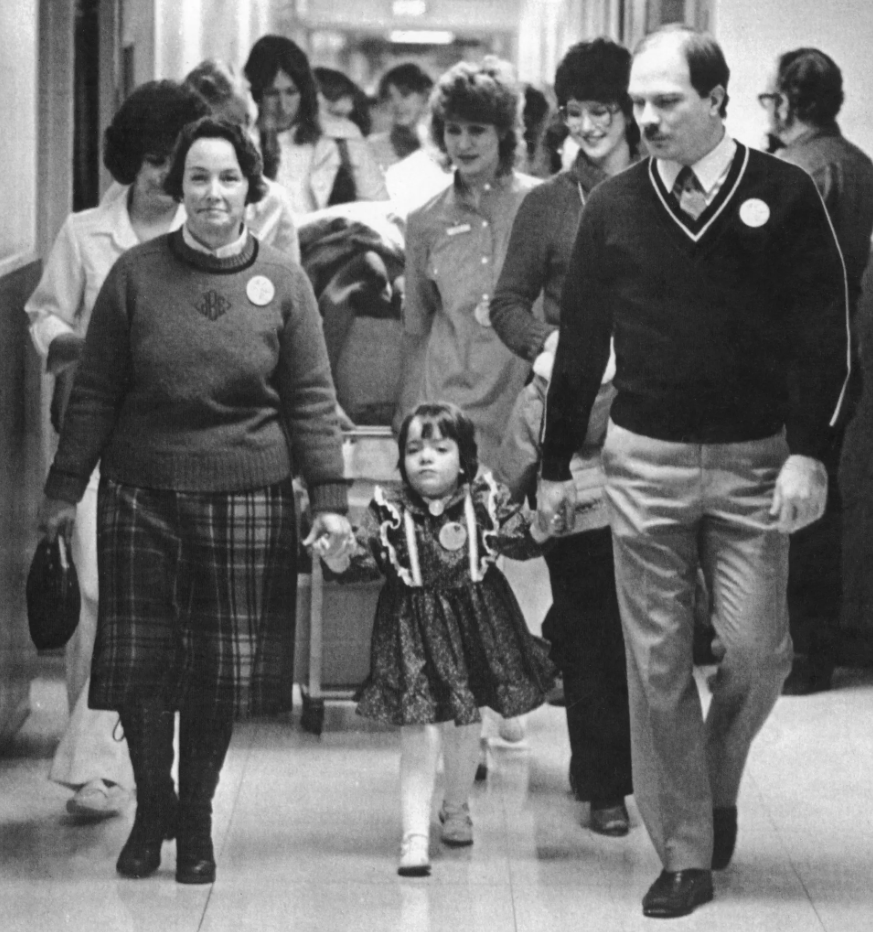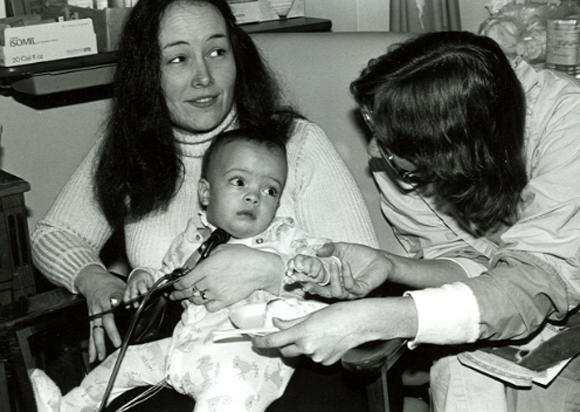How One Family’s Fight Changed History
As families navigate the Medicaid system, they are likely made aware of the waivers, qualifications, and more that are needed to receive care. What is often not discussed, however, is the rich history behind these waivers that make up the Medicaid program we know today in Colorado and beyond. The story of the Katie Beckett waiver is one of relentless advocacy, where just one family’s fight for change lifted the voices of others in the disability community for generations to come.
Mary Katherine (Katie) Beckett was born on March 9th, 1978. Just four months after Katie was born, she contracted viral encephalitis, causing brain swelling and later paralysis and breathing issues that resulted in Katie needing 24-hour care.
Katie was hospitalized for the first three years of her life. Her family was fortunate enough to be able to cover her medical expenses for a short while with their private insurance policy, but that was quickly depleted as Katie’s needs grew. Luckily, Katie qualified for Medicaid which allowed her to continue to receive these crucial services in the hospital. After three long years in the hospital, her condition improved to where she could finally return home and receive care outside of a facility. However, with Katie’s increased independence, came limitations in her care coverage. Being cared for in the comfort of her own home disqualified her from Medicaid and eliminated the assistance her family had previously received. The nursing support, medical supplies, and more that she qualified for previously were now entirely off the table simply because her family did not wish to keep her in an institution or confined in a hospital.

Katie receiving care at St. Lukes in Cedar Rapids, IA | ACLU

Katie meeting President Reagan | Ronald Reagan Library
The Beckett family faced a decision – to continue receiving Medicaid coverage, at the cost of Katie being institutionalized, or to keep Katie at home, where she can be cared for by her loved ones and can reside where she is most comfortable. Her family decided to take matters into their own hands and fight for awareness and change regarding Medicaid rules at the time. Katie’s family knew that her situation could not be an outlier – there were other families in their home state of Iowa and beyond who were facing the same challenges. The family sought to create lasting change for Katie and others like her. After tireless advocacy work by her family, Katie’s story caught the attention of President Ronald Reagan.
Advocacy in Action
President Reagan used Katie’s story as a catalyst for change. In addition to providing more independence and choice for individuals with disabilities, providing Medicaid-covered services in the home was notably less expensive than doing so within hospitals. With this rationale and Katie’s impactful story, the Reagan administration created the Katie Beckett waiver in 1981.
The Katie Beckett waiver was a massive win for the disability community. Her waiver contained two key, previously non-existent benefits for those seeking services. The first was the concept of not requiring a child’s parent’s income to be considered as a qualifier for the waiver’s eligibility. This opened the door to services for numerous individuals who would previously disqualify due to their parent’s income. Second, this waiver allowed Katie and other children with disabilities to have a choice when considering where they receive care. The waiver allowed services to be performed in the home under Medicaid, laying the groundwork for future, similar home-based programs for children across the country.
Over 40 years after the Katie Beckett waiver was created, nearly every state in the US now has the waiver or a waiver that was made possible from its creation, available to children who qualify. In Colorado (and at PASCO), we are able to provide the children’s home and community-based services (CHCBS) waiver as an alternative to institutionalized care. Relentless advocacy from the Beckett family and the Reagan administration allowed hundreds of thousands of children to receive the choice, independence, and care they deserve under these waivers.

Katie and her family leaving the hospital in 1981 after her waiver was created | United Press International
Leaving a Legacy

Katie with her family | Washington Post
Katie Beckett continued to use her story to create positive change even well after her waiver was created. At the young age of 10, Katie began her advocacy career. She spent her primary and high school years speaking in front of congressmen, governors, presidents, medical professionals, and more sharing her story to push for continued and improved Medicaid programs around the country. She worked numerous jobs growing up, including assisting sexual assault and domestic violence survivors with the YWCA as well as advocacy work within KASA, or the Kids As Self-Advocates network, a group designed to help children with significant medical needs to self-advocate in care and medical settings. Katie later went on to graduate from Mt. Mercy College in Iowa and live independently in her own home through her 20s and 30s.
Katie passed away in 2012 at the age of 34. She leaves behind a legacy of advocacy, independence, and choice that will continue to positively impact children for years to come. Katie and her family lifted the voices of many and we are eternally grateful for the impact the Becketts have made for children with disabilities.
”Advocacy is in my blood and in my soul. I care too much about the people I help, to push them aside. For me, it’s not about the attention I’ve gotten over the years, it’s about the kids and families I have helped by being a role model of sorts. They see me succeed and that helps them to do the same.
Katie Beckett, 2002

I knew about Katie an the waiver created in her name but this gave me more detail. Thank you for sharing this info.